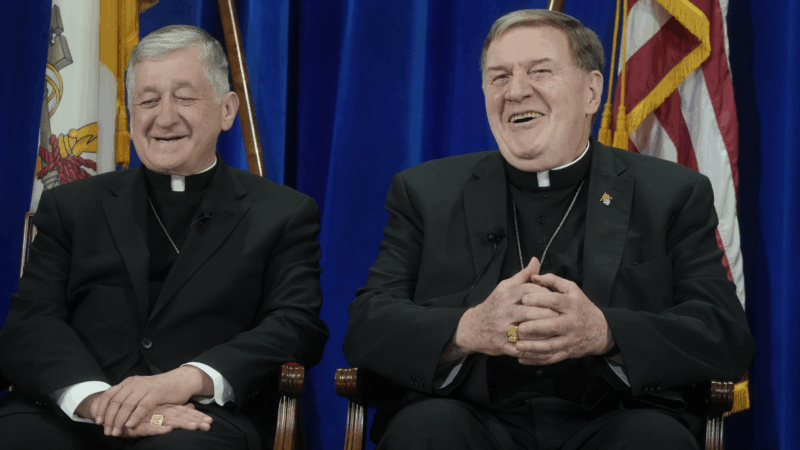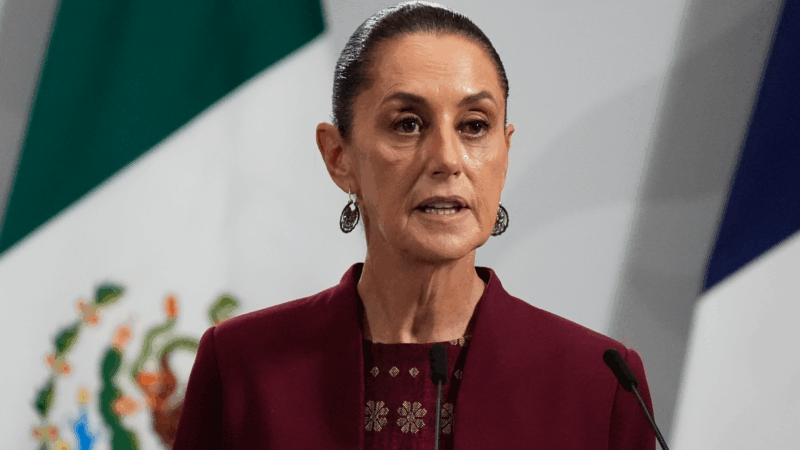Nearly 6,000 USDA workers fired by Trump ordered back to work for now
An independent federal agency has ordered the U.S. Department of Agriculture (USDA) to temporarily reinstate close to 6,000 employees fired since Feb. 13, finding reasonable grounds to believe the agency acted illegally in terminating them.
The Merit Systems Protection Board (MSPB) issued a stay, ordering USDA to return the fired workers to their jobs for 45 days while an investigation into the firings continues. The MSPB acts as an internal court to consider federal employees’ complaints against the government.
The order, from board member Cathy Harris, covers probationary employees who received identical termination letters informing them that, based on their performance, they had not demonstrated that their further employment “would be in the public interest.”
Since the middle of February, the Trump administration has fired tens of thousands of probationary employees across the federal government, typically those in their first or second year on the job.
The order comes in response to a request from the U.S. Office of Special Counsel (OSC), which is investigating the firings of probationary employees. It follows a similar decision issued last week that temporarily reinstated six probationary workers fired from six different agencies.
In a statement, Special Counsel Hampton Dellinger urged all federal agencies to reinstate probationary employees, even without a direct order.
“Agencies are best positioned to determine the employees impacted by these mass terminations,” Dellinger wrote. “That’s why I am calling on all federal agencies to voluntarily and immediately rescind any unlawful terminations of probationary employees.”
(The OSC, which investigates allegations of wrongdoing by the government against federal employees and job applicants, is separate from the special counsels appointed by the Justice Department.)
Investigation of USDA led to request for a broad stay
Dellinger requested the broad stay for USDA employees last week after gaining a clear picture of how the firings of close to 6,000 people occurred.
“Documents that OSC obtained and interviews that OSC conducted with USDA officials confirmed that USDA relied heavily on OPM guidance in terminating its probationary employees,” he wrote, referring to the U.S. Office of Personnel Management, the agency that handles many human resource functions for the government.
He concluded that USDA did not take into consideration the performance or conduct of employees. Rather, he says, the department fired the workers after determining that their positions were not “mission-critical,” as OPM had instructed and using a template letter OPM provided.
“Whether USDA terminated each probationary employee therefore depended entirely on the nature of that employee’s position, not on the adequacy of their performance or fitness for federal service,” Dellinger wrote.
Therefore, he wrote, USDA had improperly used the probationary status of employees to shrink the workforce, in order to circumvent procedures for mass layoffs, which include providing employees with 60 days’ notice.
At the USDA and elsewhere, the Trump administration has begun that process, known as a reduction in force, as it seeks to shed large swaths of the federal workforce, even as legal challenges to its summary firings of probationary employees gain steam.
The exact number of USDA employees covered by Harris’ order is unclear. In February, USDA told OSC it had fired 5,950 probationary employees. On Monday, the agency provided a list of only 5,692 names, according to the MSPB’s order.
“OSC states that the agency cautioned that this number was still in flux due to corrections, rehirings, and changes to mission-critical designations,” the order noted.
Both Dellinger and Harris themselves were fired by Trump only to be reinstated by courts in recent weeks, after judges found that they had been improperly removed.
A separate challenge to the Trump administration’s firing of probationary employees is advancing in federal court. Last week, a federal judge in San Francisco ruled that the mass firings likely violated multiple statutes. On Tuesday, OPM revised a January memo to federal agencies, noting that it was not directing them to take any personnel actions, and that decision-making authority was in their hands.
Indiana completes undefeated season and wins first national title, beating Miami
Indiana bullied its way into the history books Monday night, toppling Miami 27-21 to put the finishing touch on a rags-to-riches story, an undefeated season and the national title.
Top U.S. archbishops denounce American foreign policy
The three most-senior cardinals leading U.S. archdioceses issued the rebuke in a joint statement on Monday, saying recent policies have thrown America's "morale role in confronting evil" into question.
Italian fashion designer Valentino dies at 93
Garavani built one of the most recognizable luxury brands in the world. His clients included royalty, Hollywood stars, and first ladies.
Sheinbaum reassures Mexico after US military movements spark concern
Mexican President Claudia Sheinbaum quelled concerns on Monday about two recent movements of the U.S. military in the vicinity of Mexico that have the country on edge since the attack on Venezuela.
Trump says he’s pursuing Greenland after perceived Nobel Peace Prize snub
"Considering your Country decided not to give me the Nobel Peace Prize… I no longer feel an obligation to think purely of Peace," Trump wrote in a message to the Norwegian Prime Minister.
Can exercise and anti-inflammatories fend off aging? A study aims to find out
New research is underway to test whether a combination of high-intensity interval training and generic medicines can slow down aging and fend off age-related diseases. Here's how it might work.







